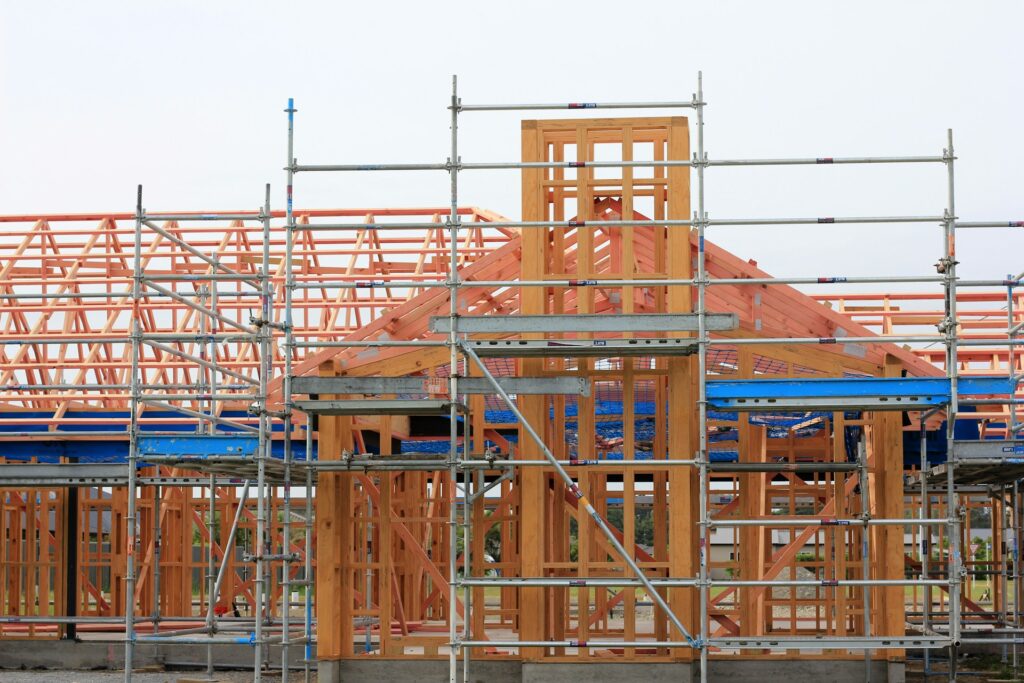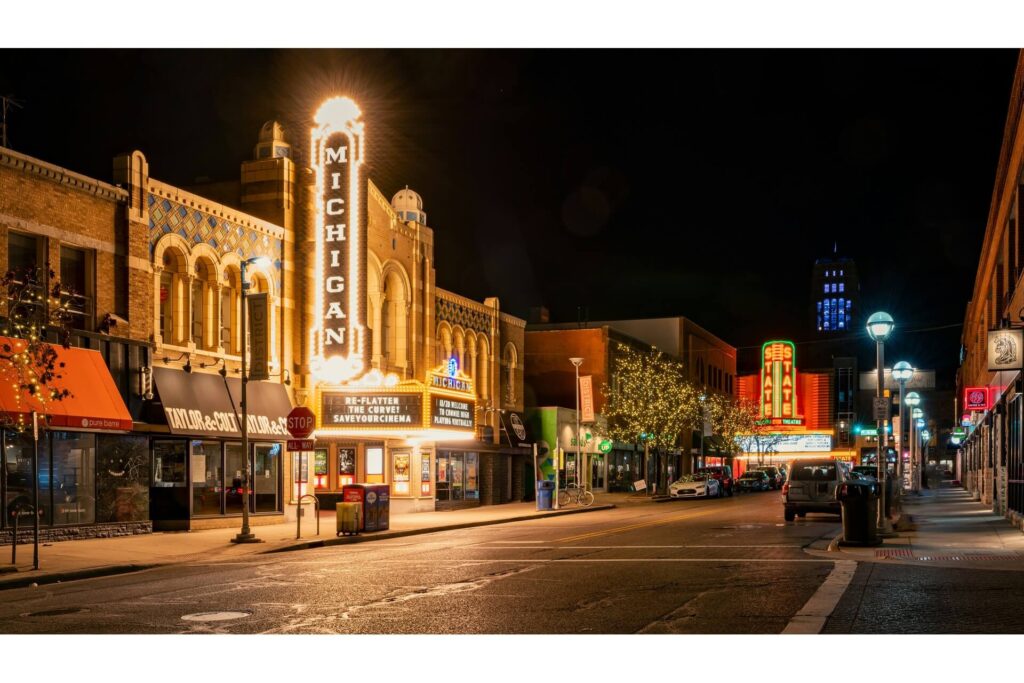
We are reader-supported. When you buy through links on our site, we may earn an affiliate commission.
Nearly everyone wants to own a home, but achieving that goal can be more difficult than you might think. Between January 2022 and January 2023, hourly wage earnings decreased by almost 1%, leaving many people to tighten their budgets as they adjust for inflation and increased prices. As a result, you should know the cheapest states to build a house in.
To calculate how expensive different locations are, you have to look at the cost of living index. If the baseline for the United States is 100, then states will fall below or above that number to determine how expensive it is to live there. Here are 10 of the least expensive states to build a ready-made floor plan or buy a home in.
| Cheapest States to Build a Home (By Price) | |||
| Rank | State | Total Average Price | Median Monthly Mortgage Payment |
| 1 | West Virginia | $225,506 | $871 |
| 2 | Michigan | $230,075 | $1,152 |
| 3 | Ohio | $231,798 | $1,166 |
| 4 | Mississippi | $235,408 | $790 |
| 5 | Arkansas | $239,654 | $821 |
| 6 | Louisiana | $249,857 | $956 |
| 7 | Indiana | $255,311 | $1,129 |
| 8 | Missouri | $258,586 | $990 |
| 9 | Kentucky | $269,938 | $932 |
| 10 | Alabama | $284,090 | $933 |

1. West Virginia
The Appalachian Mountains are rich with history and legends, and they make the perfect place to live if you want to wake up every day with breathtaking views. West Virginia has a Homebuyer Assistance Program, which can help you secure a house in the state if you live there for ten years or longer. The region is also a great place to live if you love exploration and other outdoor activities. Gaining West Virginia’s low cost of living is a bonus.
2. Michigan
Michigan is the cheapest state to build a home for anyone dreaming of a lakefront property. Explore the many shores and rolling hills during the spring or summer. You’ll get to see the gorgeous land and its many affordable places to start your residential construction. The state also gets an average of 120.1 inches of snow annually, so prepare for snowy afternoons by the fireplace if you decide to move there.
3. Ohio
Ohio is a great place for sports fans and outdoors fans alike. With Ohio featuring three major cities, you’ll never be too far from the action when you live here. Since it is one of the cheapest states to build a house in, you’ll notice that the cost of living here is lower than in many other states. Another cool thing about living in Ohio is that Columbus is a “test city” because it encapsulates the U.S. population — meaning that you’ll be able to experience gadgets and food that may or may not become part of mainstream life in a few years.
4. Mississippi
Mississippi is one of the most affordable places to live in the country. Residents enjoy some of the nation’s lowest housing and transportation costs, plus the pride of living in the birthplace of blues music. However, it has a lower-quality education system and encounters hurricanes every fall. The state might be an option worth looking into if you’re young and don’t have children, especially since the cost of housing is so low.
5. Arkansas
People move to Arkansas for its metro areas, suburban neighborhoods and rural plots of land. The sprawling state has a high minimum wage compared to the cost of living, so you’re likely to feel economically uneasy. If you’re wondering what the cheapest state to build a house in is and want to move closer to the middle of the country, Arkansas could be your next favorite place to live.
6. Louisiana
Afternoons on the bayou and evenings listening to live jazz could fill your future if you move to Louisiana. The state is rich in wildlife, land and a bustling film scene. You could build an affordable home at its average house price if you’re ready to handle the heat and annual hurricanes. Take a quick trip to sample Cajun cuisine and you might start looking for plots of land in between mouth-watering bites.
7. Indiana
Residents of Indiana enjoy shrinking crime rates and an affordable cost of living. The low living fees back the economic housing market as well. See which cities you feel most called to and explore their cultural scenes. You’ll discover diverse restaurants, public celebrations and picturesque landscapes throughout the state.
8. Missouri
Even with so many popular states bordering Missouri, it’s still relatively close to being the cheapest state to build a home. Consider the urban and rural areas that are both bustling with job opportunities and a slow-living culture. While there’s a growing scientific community in Missouri, it’s also a great place to find jobs in education, agriculture and publishing. You’ll find that it’s easy to build a house almost anywhere in the state.
9. Kentucky
Kentucky is known for bluegrass music and horse racing, but that isn’t all it has to offer. With housing costs acting as only a small part of your budget, you’ll have plenty of money to explore the area. You’ll also be paying less for groceries and utilities while living here, as the cost of living is far below the national average. Sticking with a budget is easy while living in Kentucky, all while enjoying the various sights the state offers.
10. Alabama
Though Alabama’s home prices have risen 4.7% in the last year, it remains one of the most affordable housing options for anyone who wants to move. The state has lower health care costs, but the health care system also could be better. However, its Southern charm may draw you in and help you find a new home here. The unemployment rate is under 3%, which bodes well for anyone wanting to start anew.
Follow the Cheapest States to Build a House In
If owning a home is your primary goal, try to look for a place to live that’s beloved by new homeowners. Once you know what the cheapest state to build a house in is, you’ll feel more confident while comparing your options.

FAQs About Building Affordable Homes
What Goes Into the Cost of Building a Home?
Contractors have to consider numerous factors when building a home. Excavation and building the foundation are the initial costs before they have to buy lumber, wallboards, writing, ducting and more. There may also be permit fees that differ depending on where you build your house.
You’ll get an idea of these costs upfront when you choose your contractor. They’ll outline where your money is going to put your mind at ease after securing your loan or putting the security deposit on the property.
What Are the Pros and Cons of Building a House?
There are numerous pros and cons to building a house, which change depending on each person’s situation. People typically enjoy the fact that they can either design everything themselves or live in a professionally designed space that doesn’t require lifting a finger. Everything inside your home will also be new, which decreases your risk of paying for repairs or replacements soon after moving in.
Building a house also takes time. Supply chain issues might delay your move-in date, which complicates plans for people who need to vacate their current living space by a specific time. You also won’t get to negotiate the final price like you would with someone selling their existing home. The builder sets the home price according to the plans, materials, land cost and external fees associated with your project.
What Do I Need to Know Before Building a Home?
There are a few things you need to know before building a home. When you’re comparing contractors, look them up on the Better Business Bureau website to validate their professional standing. You’ll see if they have the insurance needed to provide their services and if their professional history comes with customer complaints.
You should also expect a flexible timeline, even if your contractor is confident about when you can move in. They can’t control entire supply chains or the weather. You may need to postpone your signing date based on unforeseen circumstances.
You’ll also need to find a verified home inspector before you can move into your house. Even if you know your contractor personally and love them, inspections are a legal requirement. They’ll make sure your plumbing isn’t leaking, your foundation isn’t crooked and your electrical wiring works while your contractor is still liable for fixing everything.
Original Publish Date 3/13/2023 — Updated 5/22/2025







